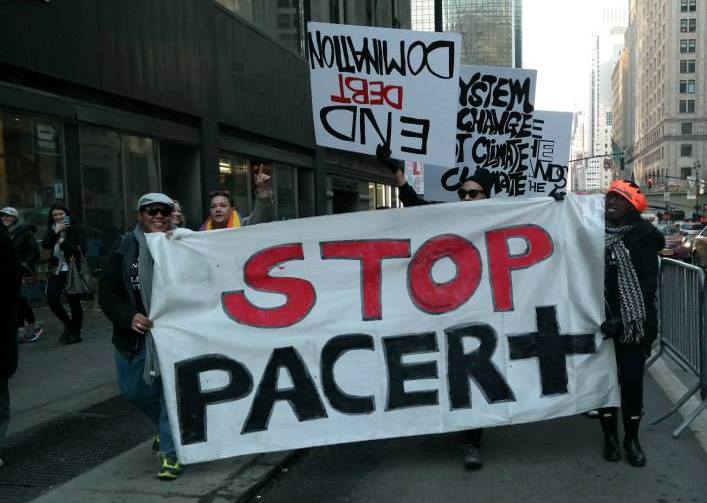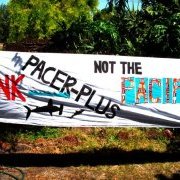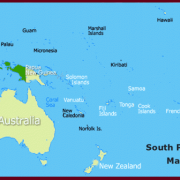
The Pacific Island Countries Trade Agreement (PICTA) is a free trade agreement on trade in goods among 14 members of the Pacific Islands Forum (Australia and New Zealand are excluded.) It was signed in 2001. Eleven countries — Cook Islands, Fiji, Kiribati, Nauru, Niue, Papua New Guinea, Samoa, Solomon Islands, Tonga, Tuvalu and Vanuatu — have so far ratified PICTA. As of 2008, PICTA was expanded to include Trade in Services (TiS), however since its signing in 2012 the TiS-Protocol has only been ratified by 4 signatories (Samoa, Tuvalu, Nauru, and Republic of the Marshall Islands), leaving it not yet in force. Given their recent membership to the Pacific Islands Forum New Caledonia and French Polynesia are able to accede to the agreement.
The Pacific Agreement on Closer Economic Relations or PACER is a framework agreement to deepen trade and investment liberalisation in the broader Pacific on a step by step basis. It was signed in 2001 and came into force in 2002. PACER includes Australia and New Zealand, and commits all members to begin negotiations towards a free trade agreement by 2011 at the latest. In August 2008, Simon Crean, Australia’s Trade Minister at the time, started advocating a “PACER-Plus” agreement, in lieu of the originally envisaged FTA, which signals the aggressiveness of Australia’s stance to achieve an agreement, particularly given the EU’s pending Economic Partnership Agreement (EPA) with the Pacific Island states. A number of officials and civil society critiques from the Pacific Islands have stated that the PACER deal is of little benefit to them, some pushing for greater labour mobility for Pacific Island workers to Australia and New Zealand. In June 2011, Fiji’s Attorney-General charged that PACER is only really benefitting the economically powerful in the region – Australia and New Zealand.
PACER-Plus built on the previous PACER framework agreement when negotiations began in 2009, before being concluded in 2017. It is a comprehensive free trade agreement, which requires a significant restructure of the Pacific countries’ economy but they are not getting anything in return.
Previously Australia and New Zealand had given non-reciprocal preferential access for Pacific Island Countries exports but PACER-Plus replaces that for the Parties involved, giving Australia and New Zealand preferential access into the Pacific Islands for goods, services and investment. Academics, legal scholars, and civil society organisations have criticised the agreement as having little practical benefit for the Pacific Islands due to the asymmetry of the commitments and economic relationship. As Papua New Guinea Minister Maru summed up the situation in 2017: “The trade is so lopsided and to their advantage... They take so much out of this country and yet they don’t want to talk about economic partnership with this country - a deal where we will get a far better deal.” PACER-Plus also contains non-enforceable arrangements on “Development Assistance” and “Labour Mobility”.
Despite the agreement, the absence of Fiji, Papua New Guinea, Palau, The Republic of the Marshall Islands and the Federated States of Micronesia leaves over 85% of the Pacific Islands economy outside of PACER-Plus. PACER-Plus came into force on December 13, 2020 with initial members to the agreement being Australia, New Zealand, Tonga, Samoa, Solomon Islands, Niue, Kiribati, and the Cook Islands. Nauru, Tuvalu and Vanuatu have signed the agreement but are yet to ratify.
Read the text of the agreement here
Contributed by the Pacific Network on Globalisation (PANG)
last update: April 2021
Photo: Tabu PACER Plus/Facebook







